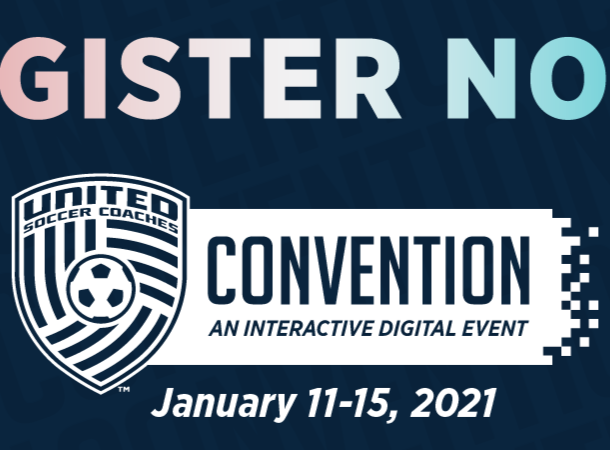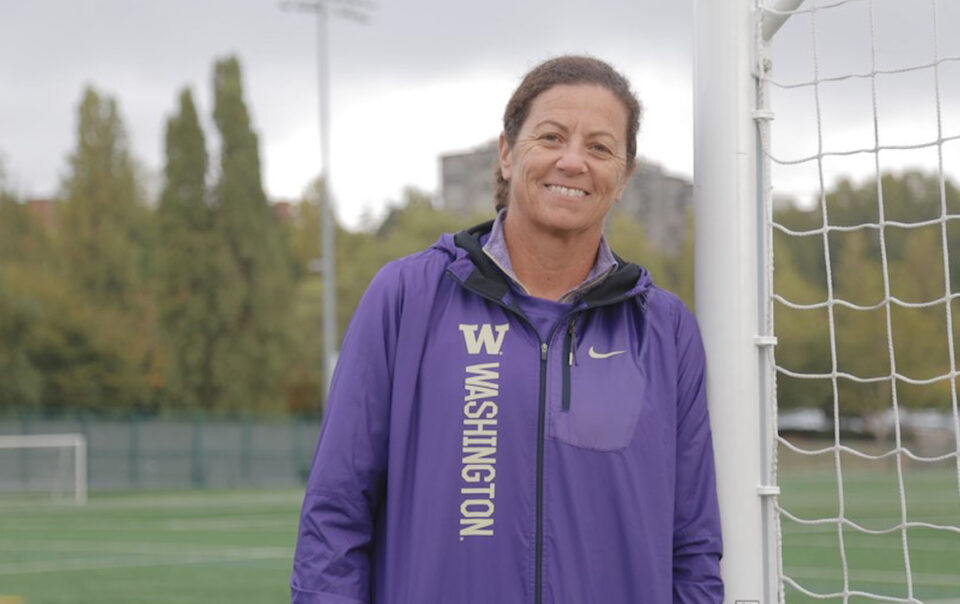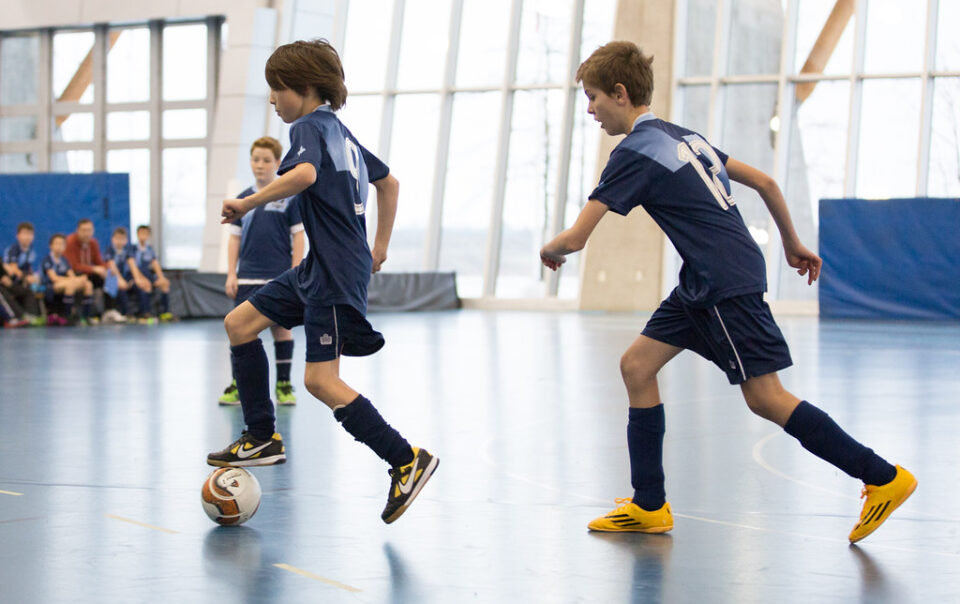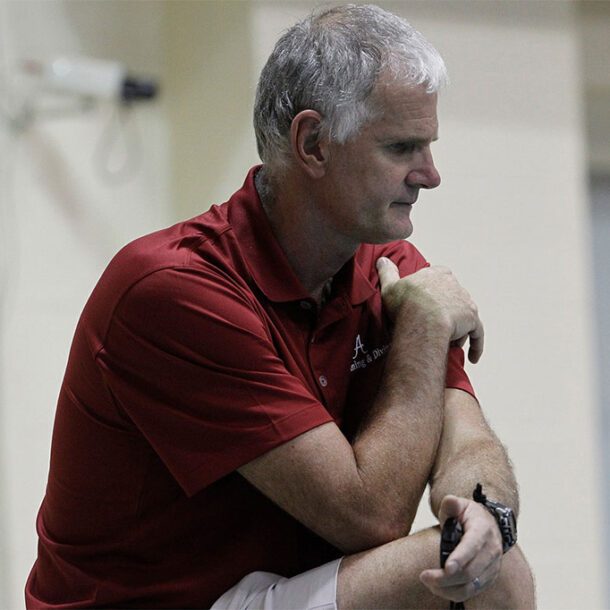
As we said along the month of December, Managing The Performance Environment, as defined by the US Soccer Federation (Influence off-the-field circumstances and persons in order to create the best possible conditions for the development and performance of the players) is one of the most important tasks of coaching.
However, it is also a very broad topic and if there is one thing that we noticed along this educational campaign (or at least we are under that impression), is that it relates a lot to personal priorities in our coaching. As we connected with coaches and experts, we realized how the topic immediately related to something they considered very important in their coaching. That’s why one of the most fascinating aspects of this month’s campaign was the diversity of subjects. In some cases, it led to Parent Engagement, in others to the construction of Participant Centered Environments, in others to Team Culture, etc.
As we tried to compile the best of the month below, we realized how we couldn’t really list them as part of a one and only subject and under a unique title, but as multiple.
All of them, at the end, add up to creating and managing this performance environment.
Richard Shorter – Parent Engagement
Chris P., Rush Soccer’s Developmental Director, interviewed our guest Richard Shorter of Non-Perfect Dad & author of ‘Questions For The Car Ride Home’. Richard shared with us his journey and his insights on how we can unite all stakeholders in youth sports.
- Don’t ‘deal’ with parents, engage them and recognize what a vital role they have in developing a good learning environment and your team culture. We are all the team: players, coaches, parents, and club. Parents are fundamental. Be always mindful of how a chat in the ride home can empower or crumble all the work you’ve put in developing a culture and a mentality in your team.
2. Create an environment in which your players feel safe about getting out of their comfort zone: This was one of Richard’s most beautiful concepts. “If we are going to get genuine unity, we need to create a safe space where everybody feels like we have an identity, and in which we are willing to explore the new together.” – Richard Shorter.
John O’Sullivan: Your Environment Has To Connect With Your ‘Why’
In this opportunity, Chris P. and a panel of Rush Soccer Directors, Mentors, and Mentees were joined by John O’Sullivan -an internationally known speaker for coaches, parents and youth sports organizations- to analyze fragments of his book Every Moment Matters and discuss the topic of Managing the Performance Environment.
- Your Environment Has To Connect With Your ‘Why’: This was a golden moment along the month, and one to deeply self reflect about, as it relates to Authenticity. You can take ideas from many others, but at the end, you can’t ‘copy-paste’, and the environment you create and the team culture you promote has to be a reflection of it. You have to be you or your players will notice it, and to be you, you have to know yourself very well. “It’s important that you connect with your ‘Why?’ and that is a personal question you have to ask yourself. ‘What really drives you?’ There’s this story that Steve Kerr told me in which he met with Pete Carroll when he became Head Coach for the Golden State Warriors. He says Pete asked him ‘How are you going to coach your team?’ and he wasn’t referring to tactics or plans or sessions but later said ‘How is it going to feel to be a part of this team? You got the rest, so that’s what it’s all about’. It was about the environment. For me, creating these learning environments in which there’s competitiveness and joy and connection is at the very forefront of my coaching, and this has to be connected with your ‘why’, with your purpose. It has to be authentic” – John O’Sullivan
2. Focus on the Learning Rather Than The Performance: Juan Gonzalez Mendia briefly commented on a thought he has about the importance of games and results when he said “To me, Saturday’s match is part of the process, it matters but not necessarily more than other instances, it’s just another component”. What’s important about that sentence is that it invites us to look at the bigger picture. John O’ Sullivan highlighted this, remarking the difference between Learning and Performance: “You cannot recognize learning in the moment. This is performance. Learning is being able to retrieve the information and skill over time. Learning happens over time. Many parents (and coaches) confuse performance for learning.”
Juan Gonzalez Mendia – Developing Participant Centered Environments:
Coach & Player Development Director Pablo Toledo and our guest Juan González Mendia -from Sudamérica Coaching- discussed Performance and Athlete Centered Environments on an enriching new episode of our Webinar Series.
- Turn Steps into Stages: If you want to create a great learning environment, you need to make the player the protagonist of his/her own learning. The story Juan shared about turning the classroom step (for the teacher) into the classroom stage (for the student) is the perfect example. “Well, I would say that most of the environments in sports in the last 20 years have been related to education, and in the last 50 or 60 years (if not more) education has been related to somebody on a step, literally, telling the participants what they need to learn. If they were lucky, they would also hear ‘why’ they need to learn it. This is a real story that serves as an example. I started teaching at a school years ago, in 2008, and the classroom had a step, so in my first week I turned that step into a stage. I moved my desk to the back of the room, and we turned the step into a stage in which the student would perform, express himself/herself, or present”. This is also why Doc Rivers says, in my opinion, that he’s always started his teams saying “I’m Doc Rivers, I’m human, and I’m going to make mistakes. That said, every decision I’ll make will be for the best of the team”. My interpretation is that he’s leveling himself with the team, what he’s implicitly saying to me is “We might have different roles in this team but we are all the same, and we are all together in this endeavour”. It’s encouraging for the athlete to get involved, to speak up and actively engage the process.
- FAIL = First Attempt In Learning. Mistakes, Growth Mindsets, and When Perfect Is A Bad Sign. The learning environment and culture we create should tell the participant “it’s ok to make mistakes, don’t fear them, they just mean we are learning”. This is important in the development of character and relates to what we presented in November as part of Carol Dweck’s “Study On Praise & Mindsets”. Quoting the author:
“The child or adult hears ‘oh, you think I’m brilliant and talented. That’s why you admire me – that’s why you value me. I better not do anything that will disprove this evaluation’. As a result, they enter a fixed mindset, they play it safe in the future and they limit the growth of their talent. Whereas focusing on the strategies they use, the way they are stretching themselves and taking on hard tasks, the intense practice they are doing, those are the kinds of things that say to a child or an older athlete: it’s about the process of growth. As a result, they don’t feel ‘oh, if I make a mistake you won’t think I’m talented” but instead they think ‘oh, if I don’t take on hard things and stick to them, I’m not going to grow”. That’s why, in line with these concepts, Juan highlighted how ‘Perfect’ might indicate something is not going so well. “If your practice looks perfect, and the players are not making mistakes, I would encourage you to reassess and possibly change that practice. If they are not making mistakes, I’m not sure they are developing”.
Glenn ‘Doc’ Rivers – Team Culture and Dealing with Conflict and Pressure.
Glenn ‘Doc’ Rivers is one of the most recognized coaches in the NBA. We took an interdisciplinary step towards watching and analyzing the remarkable Netflix documentary “The Playbook: A Coach’s Rule For Life“, in which this wonderful coach shares some of his coaching experiences and conflicts he faced both as head coach of the Boston Celtics and the L.A. Clippers.
- Teach your players to naturalize Pressure. Pressure is a Privilege: Pressure is present in all competitive environments. ‘Don’t run away from pressure, legacies, or expectations, run towards it’, says Doc Rivers. If there’s pressure and expectation, it’s because you’ve worked hard for it and you’ve put yourself in that position. Embrace it.
2. Use external conflicts and crises to unite and strengthen the team culture: Problems arise, whether we like it or not. How we deal with them is what makes a difference. Can we turn them into a uniting force on the team? Can we turn them into an emotional lace among team members? That’s the learning I take from Doc Rivers and the Donald Sterling situation. Instead of eroding the team culture, it brought the team closer than ever.
Doug Lemov – Building Culture
Megan McCormick, Rush Soccer’s Coach Education Consultant, covers the topic of Building Culture through this publication from world renowned Coach Educator Doug Lemov -CEO of Uncommon Schools and author of ‘Teach Like a Champion’, a recognized study in the U.S. field on teachers in urban areas that have obtained great results, analyzing their concrete working methods-, in which the author dives into some of the systems to connect teams and build strong mindsets.
- Building Culture: ‘Want to run a successful organization (team)? Take everything you do and multiply it by culture’ – said Harvard Business School Professor Frances Frei. Recognize the importance of developing a positive environment and team culture, and mostly, remember that building a culture is not about that great speech but about what we do every day, it’s about the details: Culture is built in a thousand smaller moments when we’re not fully aware that we’re building it. The aggregate message of those moments is at least as influential as the moments when we are aware that we are building culture: talks before or after games or before the season when we discuss how as a team we want to interact and what our mindset should be. Those aren’t irrelevant. But culture really is the thousand unacknowledged half second interactions in which our response communicates mindset and relationship – Doug lemov.
2. Respond Rather Than React: Coaches make statements… in response to player errors in part to protect their own ego, suggests Stu Singer, a consultant who works with coaches to develop their mindfulness and self-discipline. “The statement lets everybody know: I taught him better. It’s about protecting the self instead of responding to the athlete”. That’s disruptive for team culture.











